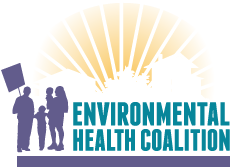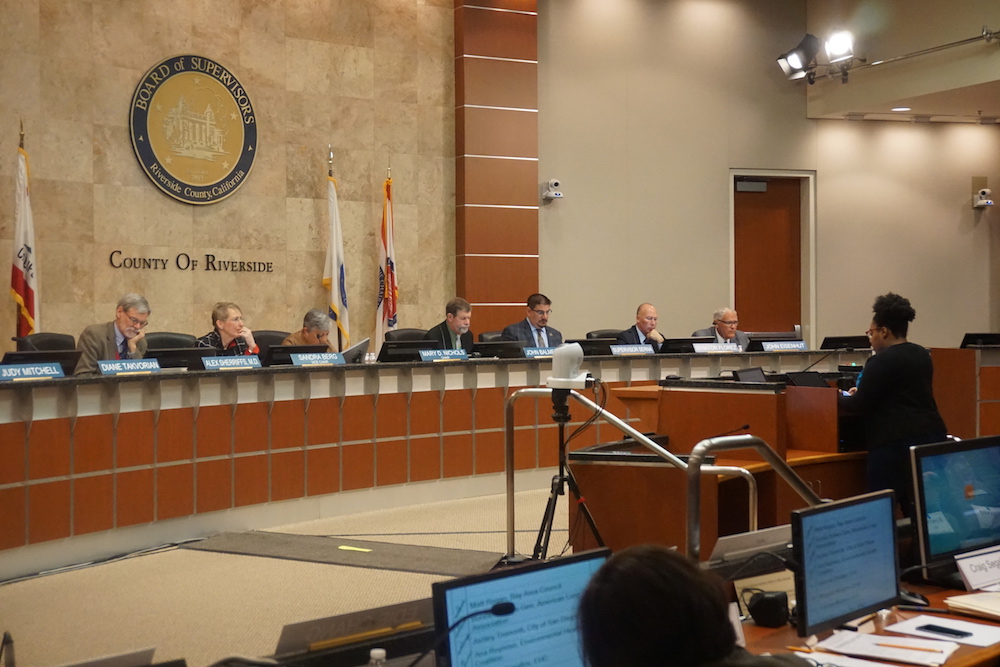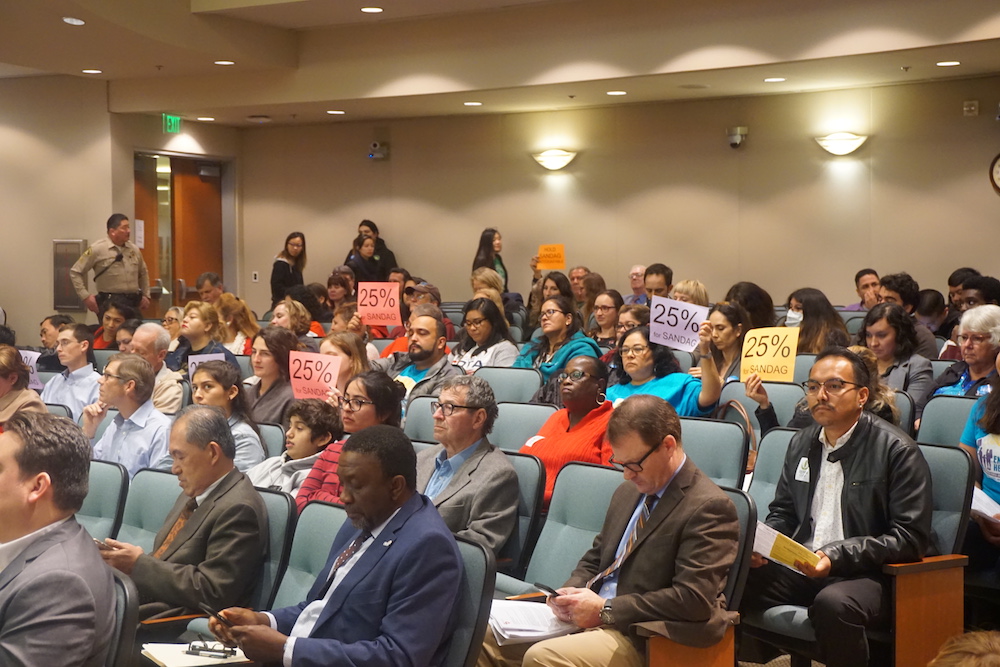We know that our families suffer first and worst from the harmful impacts of climate change due to discriminatory transportation planning that comes at the expense of historically neglected communities.
We also know that environmental justice is the right of all people to live, work and play in a healthy and safe environment.
That's why EHC works on transportation justice to bring more accesible, affordable and safe pedestrian, bike and transit improvements to the neighborhoods that need them most.
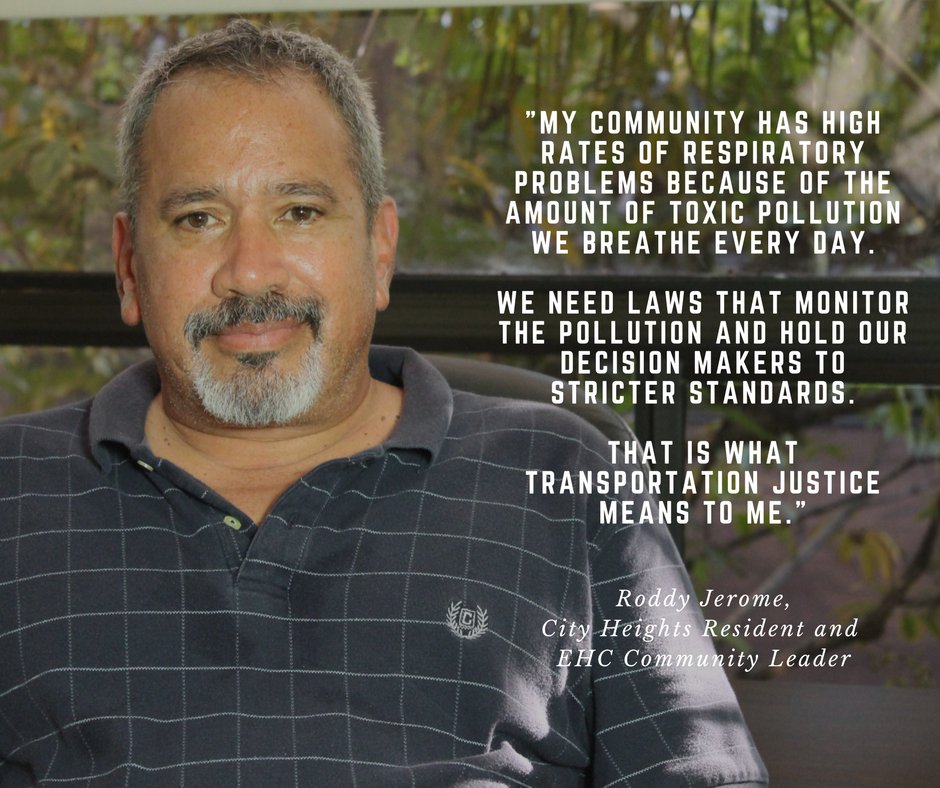
We know we deserve climate justice and #healthyhoods and less asthma hospitalizations for our children.
Our community leaders traveled to Riverside to tell the Air Resources Board we deserve better from SANDAG - our region's transportation planning agency.
That's why we asked for the Air Resources Board to require SANDAG cut its emissions by 25 percent by the year 2035.
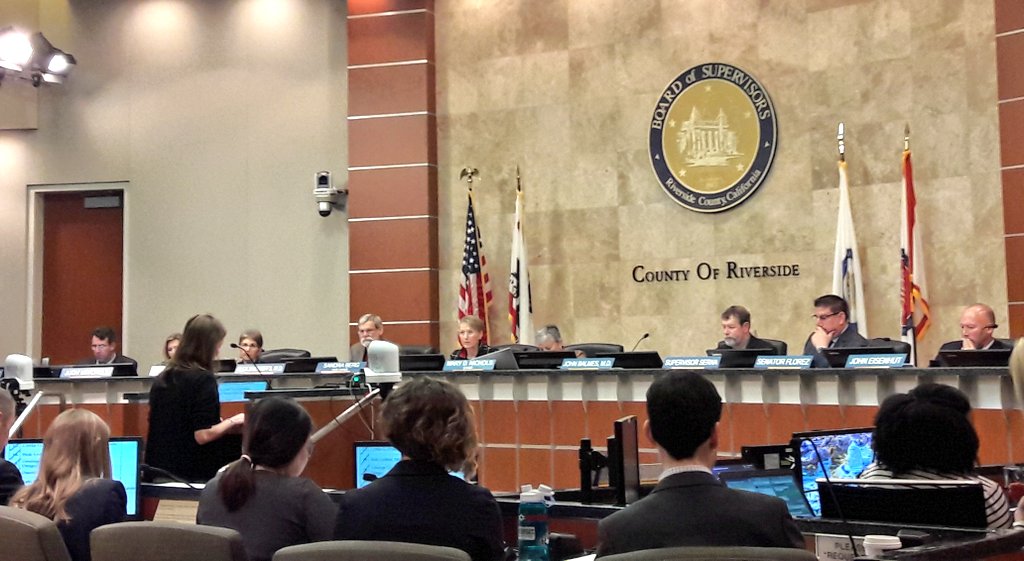
Our Executive Director Diane Takvorian, who also sits on the Air Resources Board, proposed a higher emissions-reduction target for SANDAG. Board members Dean Florez and John Gioia supported her amendment before the 19-percent target was finalized.
“The lack of strong statewide leadership behind SB 375 simply means local, grassroots organizations have more work to do,” says Ana Reynoso, EHC transportation justice policy advocate. “Residents who journeyed to Riverside for last night’s vote know first-hand that the effects of climate change disproportionately impact communities south of the I-8 freeway and that we needed at least a 25 percent reduction in pollution by 2035 to alleviate that.”
Moving forward, we promise to team up with local allies including Climate Action Campaign, San Diego 350 and more to ensure SANDAG meets the 19-percent reduction standard for San Diego in an equitable and transparent way.
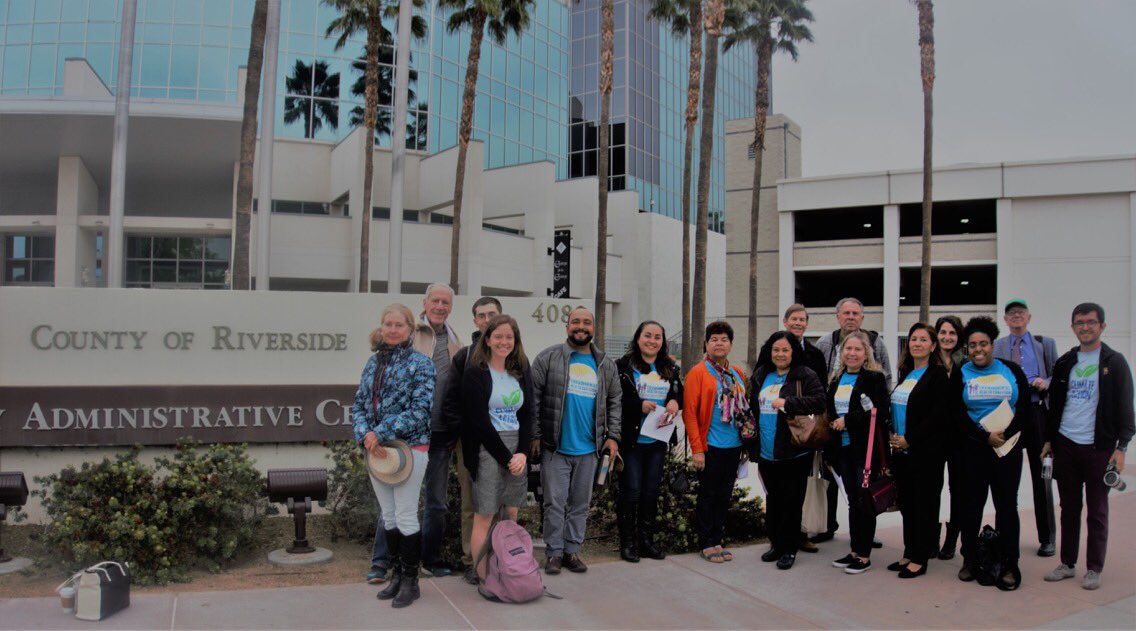
“We intend to work very closely with the Air Resources Board to ensure it holds SANDAG accountable to implementing SB 375 in a way that prioritizes the communities that need the most immediate help,” says Reynoso.
Learn more about transportation justice here, and click here to get involved.
